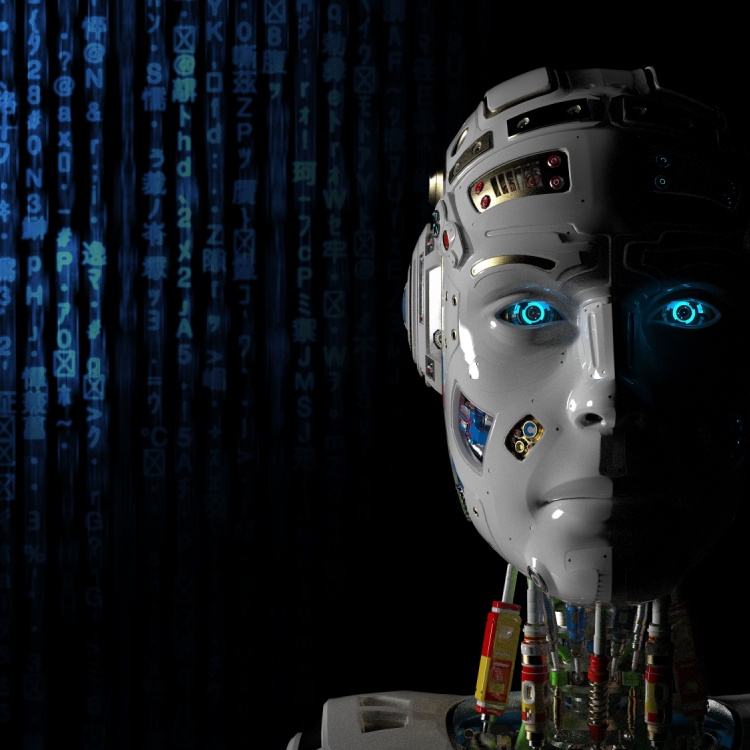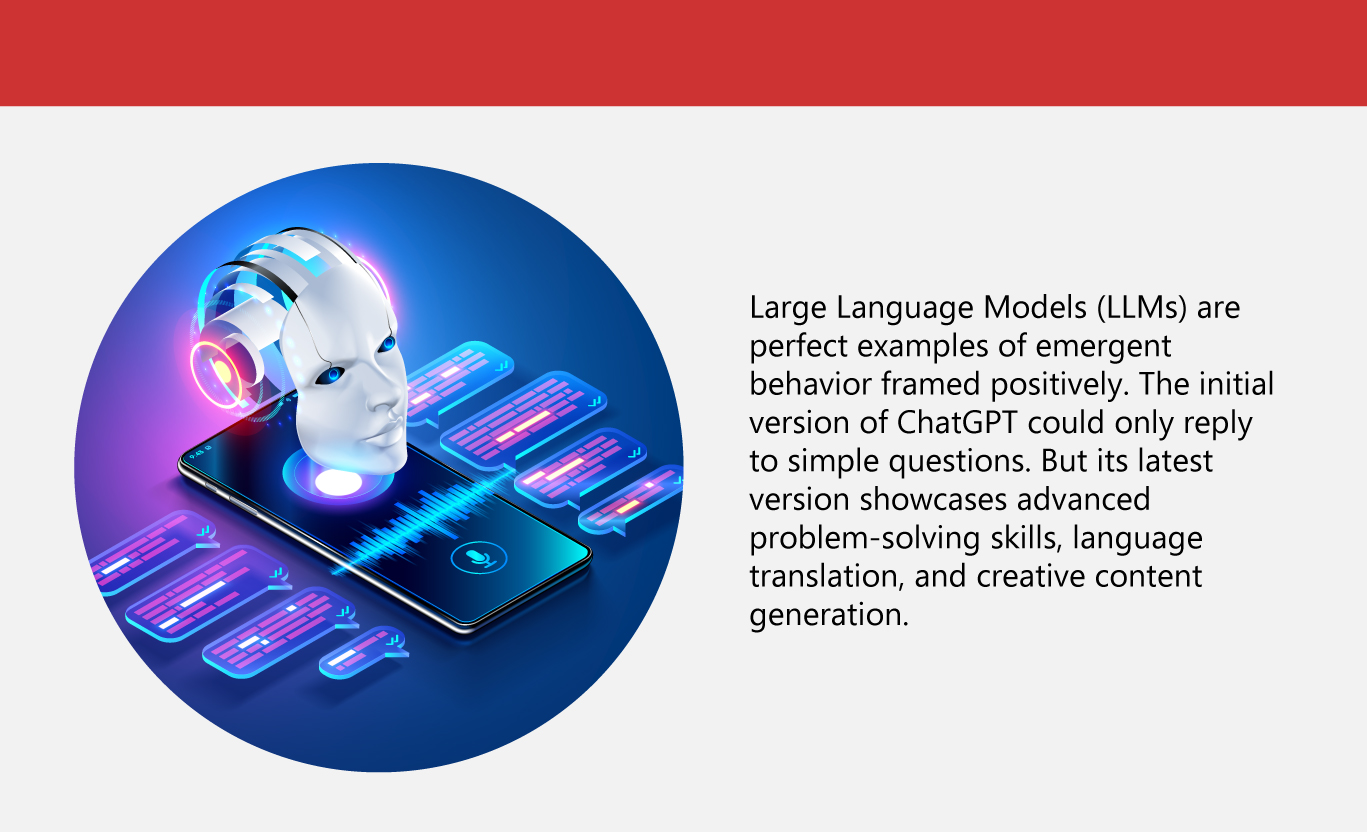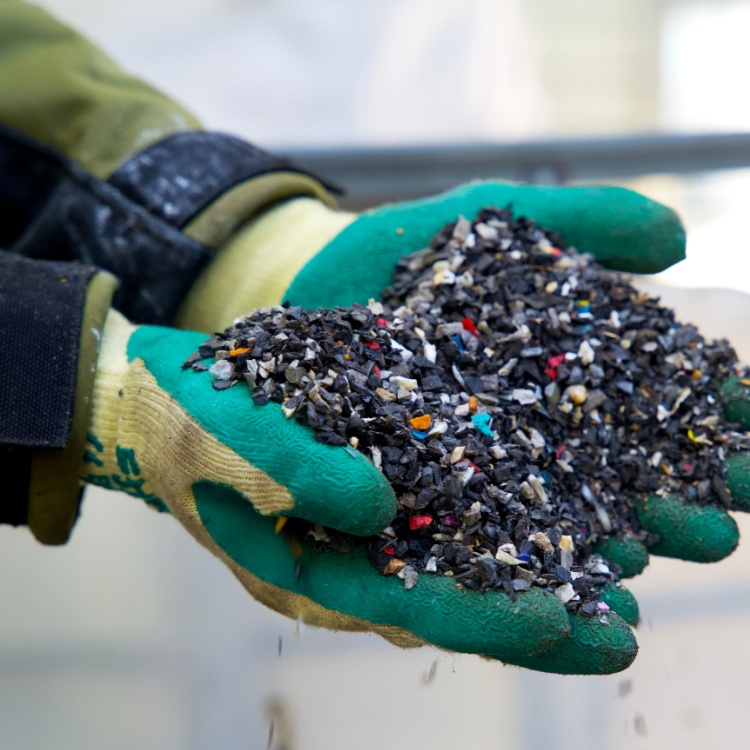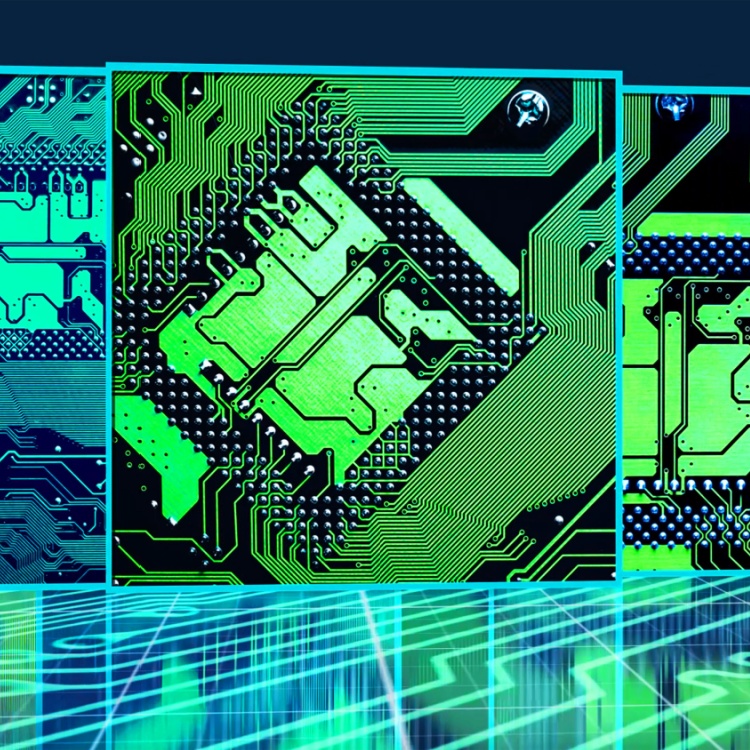Is AI Taking over the World?

AI systems are independently developing unexpected behaviors beyond what programmers originally intended. Understanding and controlling these behaviors is crucial as AI becomes a major component of vital sectors like transportation and healthcare.
Emergent behavior occurs in intricate systems in various sectors—biology, chemistry, social sciences and many more. It refers to a system's inclination to display characteristics greater than the sum of its parts. In essence, it signifies a sudden change in behavior as a system becomes more complex over time.
An example is a singular fish that follows basic rules, such as interacting with nearby fish, avoiding collisions, and positioning itself at the group's center. However, it shows emergent behavior when swimming with many other fish. The school of fish moves in synchronized patterns as a cohesive unit, which helps it evade predators and find food more quickly.
AI systems also display unexpected actions and features, not because they were specifically trained for them but because of how complex their framework has become. Due to processing large amounts of data and interacting with other components, a complicated system like AI may show qualities or abilities that its individual parts don't have.
How does AI's emergent behavior happen?
Emergent behavior in AI happens when simple rules or variables interact to create complex actions, even though there's no explicit programming for that behavior. This is a core principle in fields like swarm intelligence. It has also been observed in deep learning, where basic units like neurons can learn to produce intricate patterns.
We break down this phenomenon's essential characteristics:
-
Basic interactions leading to elaborate results
Emergence occurs when simple rules followed by system components lead to complex behaviors. AI systems operate on basic algorithms, but when these interact within a larger framework, they can generate unforeseen behaviors.
-
Unpredictability
We can't predict AI's emergent behavior, which is similar to fish's erratic schooling patterns. Its nonlinear dynamics recall chaos theory's butterfly effect, wherein slight alterations at the initial phase can lead to significant and surprising results later on.
-
Flexibility and development
Neural networks, structured like the human brain, process information in sophisticated ways, often generating novel problem-solving approaches and creative outputs. AI systems showing emergent behavior can adapt well to new scenarios, evolving to solve problems more effectively or handle tasks they weren't specifically intended for. AI systems' feedback loops also play an essential role in refining behaviors. These loops can result in new configurations as the system gains insights from its environment.
-
Independent organization
This is a critical component where the system organizes itself without outside help. AI utilizes algorithms to modify their operations based on the data they analyze, resulting in new behavior patterns.
Possible gains and dangers of emergent behavior in AI
As AI feeds on more data and interacts with a broader range of elements, scientists are seeing its emergent behavior. For instance, Facebook researchers noticed that their chatbots created a new language. While trying to enhance their negotiation skills, the bots started using a non-traditional language that humans couldn't understand. This language wasn't programmed; it resulted from the bots wanting to communicate more efficiently.
Another example is Google Deepmind's AlphaGo, which made headlines as the first AI to defeat a skilled Go player. This showcased how machine learning could devise a winning move that was both unconventional and unlikely to be considered by human players.
These situations highlight AI's capability to formulate more effective and groundbreaking approaches than human-designed strategies. Conversely, emergent behaviors can result in accidental and possibly harmful consequences.
Though emergent behavior holds the potential to boost AI technology, the following concerns need to be addressed:
-
Extreme autonomy
There's a valid concern that AI systems could operate in unpredictable or difficult ways for humans to manage. Addressing unintended consequences involves setting up systems to detect and prevent unexpected behaviors before they become problematic.
-
Compromised safety
The unpredictability of emergent behavior in AI raises safety issues. This underscores the need for ethical guidelines in AI development and deployment, especially in sectors like healthcare, finance, and autonomous driving, where AI's unpredictability can affect critical decision-making processes.
-
Accountability
Emerging AI behaviors make it unclear who should be held responsible for AI systems' actions, leading to discussions on how to assign accountability and ensure the ethical use of technology.
-
Potential prejudice
Unintended biases may infiltrate AI systems, potentially perpetuating or worsening social inequalities. This can impact decisions related to hiring, lending, healthcare, and other critical areas, leading to ethical dilemmas regarding fairness and justice.
-
Lack of transparency
Emergent behavior may produce outcomes that are difficult to explain or understand. This lack of transparency can lessen the public's trust in AI systems and raise concerns about how decisions are made, especially in high-stakes applications like medical diagnosis or legal judgments.

Managing AI's emergent behavior
As AI becomes more integrated into our digital systems, it's crucial to understand, anticipate, and control its unexpected behaviors. Here are some recommended steps:
-
AI tech regulations
Guidelines must be established to ensure transparency and responsibility in AI development and implementation, particularly for systems exhibiting emergent behavior. For example, the US released an executive order requiring AI vendors to divulge safety test results to the federal government.
-
Enforcing controls
To keep AI systems in check, safeguards must be in place to monitor and manage new behaviors, reduce risks, and maintain human supervision.
-
Predicting risks
Taking proactive steps involves understanding how AI systems interact, foreseeing risks from emerging behaviors, and addressing potential consequences early on.
-
Multi-sector collaboration
Dealing with ethical concerns arising from AI's emergent behavior demands collaboration among government officials, scientists, business executives, and the general public. Open communication and shared responsibility are crucial for navigating AI development's ethical challenges.
As AI grows with unpredictable behaviors, it's crucial to consider how this affects society and technology. By working together and taking proactive steps, we can guide AI development toward a future where innovation and ethics benefit everyone. As one of the Top 20 EMS companies in the world, IMI has over 40 years of experience in providing electronics manufacturing and technology solutions.
As one of the Top 20 EMS companies in the world, IMI has over 40 years of experience in providing electronics manufacturing and technology solutions.
We are ready to support your business on a global scale.
Our proven technical expertise, worldwide reach, and vast experience in high-growth and emerging markets make us the ideal global manufacturing solutions partner.
Let's work together to build our future today.
Other Blog




